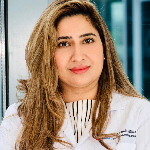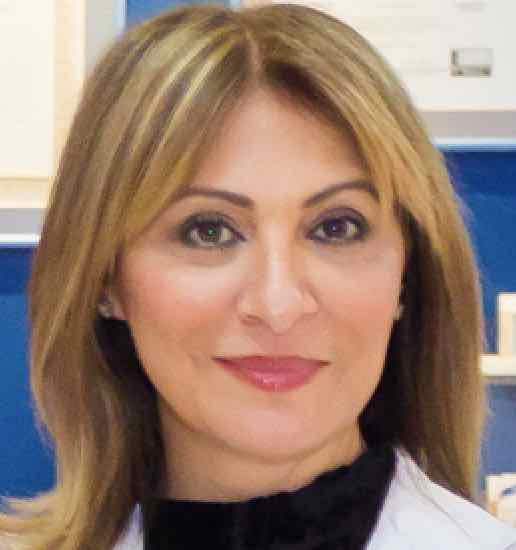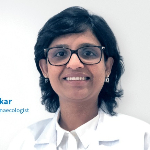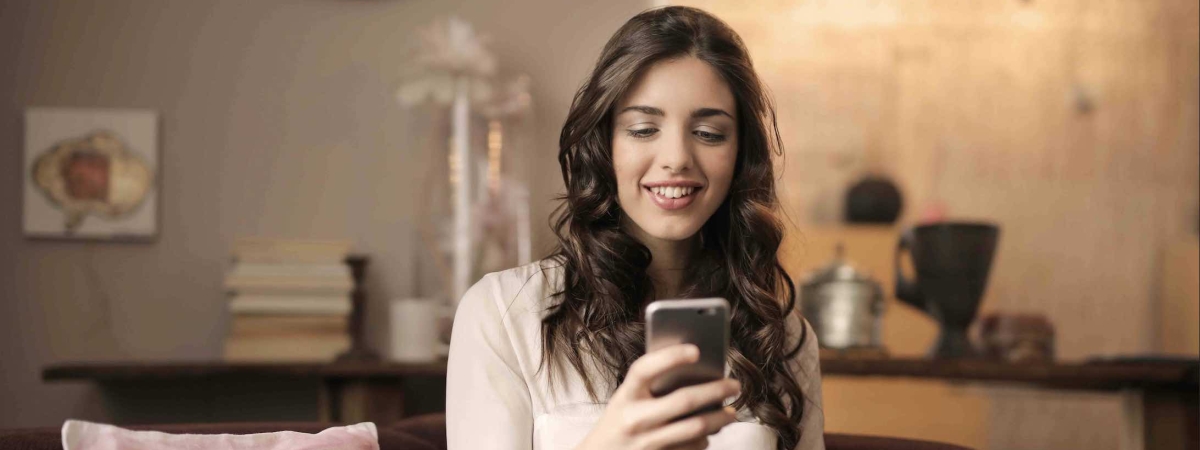My Daughter Started her Period: Too Delicate a Topic in the UAE?
03 May 2018
393 views
A concerned mother once visited our website
And shared with us some information regarding her daughter. The mother explained that her 13 year old daughter’s period (also known as menstruation) had suddenly stopped and she was concerned. Another parent complained that her daughter was being teased at school for having her period and was told she had a contagious disease. We have encountered similar questions and scenarios from parents who are rightfully concerned about their daughter’s well-being during their transition from adolescence to womanhood. Living in the UAE with parents of numerous nationalities, cultures and norms, it is quite natural for some parents to underestimate the importance of discussing certain topics with their daughters. This is especially true when it comes to puberty and topics of similar nature. It is important to remember that for many young girls, going through puberty is a period of uncertainty, anxiety and embarrassment. Therefore, having the right information is important to a girl who is developing both physically and emotionally throughtout her adolescent years and well into her adult life.
There is no exact age for when menstruation begins
As every girl experiences hormonal shifts based on a variety of different reasons. According to Dr. Lubna Ahmad, she follows a standard protocol: “The American College of Obstetricians and Gynecologists recommends that girls first see a gynecologist when they're between the ages of 13 and 15. Most girls will not need a pelvic exam during this first visit.” As soon as your daughter experiences her period, she should be briefed on exactly what to expect and provided with moral support from her family. Dr. Leila Soudah explains: “Parents should inform their child that puberty is normal, nothing to worry about, a beautiful aspect of growing up, means you are healthy, with nothing to be ashamed of.” Dr. Jayacy C Jayankar further adds that a proactive approach also helps: ”The mother should let the child know early about bodily changes that is going to happen so the child enters her teenage years feeling less anxious.”
Dr. Amelie Hofmann-Werther who is already aware that the onset of puberty differs widely in age, knows that young girls will experience a variety of issues such as: “Bad hair days, skin problems, feeling heavy, retaining of water in the tissue, rumbling stomach, bloated tummy and not being able to fit into her favorite jeans!” All of which are tell-tale signs that your daughter may have already started her menstruation.
Now that your daughter has experienced her first period, what next?
Other than acknowledging the issues associated with menstruation, Dr. Leila asserts that establishing the right hygienic behavior with regards to your period is very important: “A gynecologist will also recommend the best hygiene practices which is extremely important.” She also believes schools should be more involved in providing awareness programs for young girls who are experiencing periods.
In addition to understanding and tackling menstruation, it is also important for young women to adopt necessary habits for a healthy lifestyle. Other than adopting hygienic practices during menstruation mentioned by Dr. Leila, she also believes obesity due to bad eating habits and non-active lifestyles are contributing factors to Polycystic Ovarian Syndrome (PCOS), one of the most common hormonal disorder among women who reach the age of reproduction. According to a study by Conceive, a gynecology and fertility hospital in Sharjah, links PCOS with weight and lifestyle-related diabetes. Dr. Pankaj Shrivastav, director of Conceive, says: “It is a well-established fact that we have a much higher percentage of PCOS in the UAE… we now know PCOS is very closely connected to diabetes, and both the Gulf and South Asia suffer from diabetes of almost epidemic proportions. The fact is, if a girl has diabetes in the family she has a pretty high chance of developing PCOS.” Establishing healthy balanced eating habits and regular exercise is necessary to avoid developing and reversing PCOS.
Parents must balance their time to play a role as important as gynecologists
In preparing, engaging and educating their daughters as they transition from pre-adolescence to adulthood. Dr. Lubna believes: “Reliance on social media and unvetted access to information online can lead to depression among young developing women.” Dr. Amelie further adds: “Optimization of your resources should include nutrition education, stress-relief and detox, physical fitness for more range of motion and flexibility as a holistic approach for hormone balancing. Make lifestyle changes and adopt a healthy diet…Get education and help in nutrition and incorporate regular exercise into your daily regime”. To conclude: “A check-up visit with the gynecologist should ideally be a combination of consultation, medical history taking and tests individually required.”
Special thanks to our contributing gynecologists:
Dr. Lubna Ahmad is a Canadian Specialist Obstetrics and Gynecology, who obtained a Diploma from Royal College of Physicians and Surgeons in Ireland (DRCOG).
Dr. Amelie Hofmann-Werther is a German Board Certified Specialist Obstetrics and Gynecology, Fetal Medicine Sonographer, Psychosomatics & Verbal Intervention Counselor and Colposcopist.
Dr. Leila Soudah is a German Board Certified Specialist Obstetrics and Gynecology, Fellowship in Functional Regenerative Nutritional Medicine (USA) and CEO and Founder of Dr. Leila Soudah Clinic in UAE since 1998.
Dr. Jayacy C Jayankar is Specialist Obstetrics and Gynecology, holds certifications from France and Germany in advanced endoscopy and laparoscopy respectively.
Comments
Other Articles
- How Emirates Smiles challenges Invisalign in Dubai - 17 March 2023
- Top Do's and Dont's for Patient Referrals - 07 March 2022
- Express Quote Tutorial - 16 February 2022
- Best Ayurvedic Treatments in Dubai - 18 November 2021
- Best IVF Clinics in Dubai Reviewed - 02 November 2021
- LASIK: The Best Treatments and Prices in Dubai - 29 October 2021
- Vaginal Rejuvenation Treatments in Dubai: A Complete Guide - 26 October 2021
- Best Cataract Doctors in Dubai - 26 October 2021
- Best Glaucoma Doctors in Dubai - 25 October 2021
- Vaginoplasty Prices in Dubai - 24 October 2021
- Labiaplasty Prices in Dubai - 22 October 2021
- Best Varicose Vein Surgeons in Dubai - 17 October 2021
- Hair Transplant Surgery vs Non Surgical Hair Loss Treatments in Dubai - 14 October 2021
- FUE vs DHI vs Robotic Hair Transplant in Dubai - 13 October 2021
- Best Gynecomastia Surgeons in Dubai - 13 October 2021
- Best Beard Transplant Surgeons in Dubai - 12 October 2021
- Best Tummy Tuck Surgeons in Dubai - 11 October 2021
- Best Hair Transplant Surgeons in Dubai - 11 October 2021
- Best Body and Face Lift Surgeons in Dubai - 09 October 2021
- Best Liposuction Surgeons in Dubai - 07 October 2021
- Best Weight Loss Surgeons in Dubai - 05 October 2021
- Best Brazilian Butt Lift (BBL) Surgeons in Dubai - 05 October 2021
- Best Breast Surgeons in Dubai - 04 October 2021
- Best Rhinoplasty (Nose Job) Surgeons in Dubai - 03 October 2021
- Beauty Salons vs. Clinics: 3 Reasons to Consider Beauty Salons for Body Slimming in Dubai - 29 September 2021
- Best LPG Treatments in Dubai: Prices and Locations - 24 September 2021
- Beauty Salons vs. Clinics: Which is Better and Safer for Cosmetic Treatments in Dubai? - 24 September 2021
- CoolSculpting vs CoolTech, which one to choose in Dubai? - 22 September 2021
- Profhilo Treatment and Price in Dubai - 18 September 2021
- Stretch Mark Treatment Prices in Dubai - 16 September 2021
- Cellulite Treatment Prices in Dubai - 13 September 2021
- Hand and Foot Rejuvenation Prices in Dubai - 12 September 2021
- Body Slimming Treatment Prices in Dubai - 12 September 2021
- Facial Treatment Prices in Dubai - 07 September 2021
- Hair Loss Treatment Prices in Dubai - 02 September 2021
- PRP Prices in Dubai - 01 September 2021
- Mesotherapy Prices in Dubai - 31 August 2021
- Filler Prices in Dubai - 30 August 2021
- Botox Prices in Dubai - 28 August 2021
- Laser Hair Removal Prices in Dubai - 27 August 2021
- The Best Eczema Cream in Dubai from an Experienced Specialist Dermatologist - 27 June 2021
- Booking Appointment Requests, A New Process - 18 June 2021
- A new way to beauty is here in Dubai - 27 April 2021
- ZEROID, Korea's Number One Dermocosmetic Brand - 30 March 2021
- 10 Ingredients to Watch Out For in Moisturizers for Sensitive Skin - 03 March 2021
- What is Skin Barrier and How Ceramides Work to Repair it? - 02 March 2021
- MartiDerm, A Trusted Brand for Skincare and AntiAging - 24 February 2021
- Skin Care for Sensitive Dry Skin - 07 February 2021
- Skin Care for Sensitive Dry Skin with Pigmentation Concern - 07 February 2021
- Skin Care for Sensitive Dry Skin with Wrinkles Concern - 07 February 2021
- Skin Care for Sensitive Dry Skin with Pigmentation and Wrinkles Concern - 07 February 2021
- Skin Care for Dry Skin - 07 February 2021
- Skin Care for Dry Skin with Pigmentation Concern - 07 February 2021
- Skin Care for Dry Skin with Wrinkles Concern - 07 February 2021
- Skin Care for Dry Skin with Pigmentation and Wrinkles Concern - 07 February 2021
- Skin Care for Sensitive Oily Skin - 04 February 2021
- Skin Care for Sensitive Oily Skin with Wrinkles Concern - 04 February 2021
- Skin Care for Sensitive Oily Skin with Pigmentation Concern - 04 February 2021
- Skin Care for Sensitive Oily Skin with Pigmentation and Wrinkles Concern - 04 February 2021
- Skin Care for Oily Skin - 03 February 2021
- Skin Care for Oily Skin with Wrinkles Concern - 03 February 2021
- Skin Care for Oily Skin with Pigmentation Concern - 03 February 2021
- Top 5 Moisturizers Recommended in Dubai for Atopic Dermatitis or Extremely Dry and Sensitive Skin - 31 January 2021
- Skin Care for Oily Skin with Pigmentation and Wrinkles Concern - 13 January 2021
- The Future of Healthcare Services is at Home - 08 January 2021
- Dermatologists' Guide to Select Right Cosmetic Products - 30 December 2020
- Pfizer Vs Sinopharm in the UAE: Which COVID Vaccine Should I Take? - 24 December 2020
- The Most Comprehensive Business Tool for Hospitals and Clinics - 21 October 2020
- Top 5 Most Popular Dental Treatments on DrFive - 29 June 2020
- Welcome to UAE’s #1 Healthcare Review Portal - 29 June 2020
- Top 3 Dental Clinics by Volume of Vouchers Sold on DrFive - 28 June 2020
- Did You Know that Dental Patient Referral by DrFive is 5 Times Better than Google? - 25 June 2020
- Did You Know 89% of Patients in Dubai are Happy with their Doctors - 24 June 2020
- Did You Know Over 50,000 People Visit Doctor Profiles Every Month - 23 June 2020
- Did You Know Patients Trust Reviews - 22 June 2020
- COVID-19 in Pregnancy - 07 April 2020
- Top 10 Gynecologists in Dubai by Reviews in 2019 - 15 January 2020
- Best Orthopedic Hospital in Pusan: Kang Dong Hospital - 15 January 2020
- Top 10 Dermatologists in Dubai for 2019 - 07 January 2020
- Top 8 Plastic Surgeons in Dubai for 2019 - 05 January 2020
- Top 10 Orthopedic Surgeons in Dubai for 2019 - 05 January 2020
- Best General Hospital in Pusan: Pusan National University Hospital - 29 December 2019
- 5 Essential Medical Tests for Men Over 40 in Dubai - 08 December 2019
- Compare Dental Services in Dubai with ExpressQuote - 16 September 2019
- Korea's Top Surgeons Obsessed with Safety - Banobagi Plastic Surgery - 25 June 2019
- Gold Standard in Korea? - JK Plastic Surgery - 19 May 2019
- Treating Back Pain Without Surgery – Jaseng Hospital - 12 May 2019
- Ginseng, the Elixir of Life? - 12 May 2019
- First and Best Infertility Treatment in Korea - MizMedi Hospital - 01 May 2019
- The Only Heart Specialty Hospital in Korea - Sejong Hospital - 01 May 2019
- Why Arab Patients Choose Wooridul? - 01 May 2019
- Intro: Best Hospitals in Korea 2019 - 18 April 2019
- Dubai: FREE CME Points for OB/GYNs on March 11 - 09 March 2019
- Top 10 Dubai Rheumatologists Most Searched in 2018 - 18 January 2019
- Top 10 Gynecologists in Dubai by reviews in 2018 - 18 January 2019
- Dubai: FREE CME Seminar for OB/GYNs on January 22 - 17 January 2019
- Top 10 Pediatricians in Dubai by reviews in 2018 - 16 January 2019
- Top Doctor Reviews of the Week, Dec 20 - Dec 27, 2018 - 27 December 2018
- Top Doctor Reviews of the Week, Dec 14 - Dec 20, 2018 - 21 December 2018
- Top Doctor Reviews of the Week, Dec 7 - Dec 13, 2018 - 13 December 2018
- Top Doctor Reviews of the Week, Nov 30 - Dec 6, 2018 - 06 December 2018
- Who is the most recommended Dubai gynecologist at each hospital in 2018? - 05 December 2018
- Top Doctor Reviews of the Week, Nov 23-29, 2018 - 29 November 2018
- Top Doctor Reviews of the Week, Nov 15-22, 2018 - 22 November 2018
- Top 4 complaints to doctors in Dubai - 15 November 2018
- Top Doctor Reviews of the Week, Nov 8-14, 2018 - 15 November 2018
- Top 5 Patient Complaints to Healthcare Management in Dubai - 14 November 2018
- New Features on DrFive Exclusively for Doctors - 11 November 2018
- Top Doctor Reviews of the Week, Nov 1-7, 2018 - 08 November 2018
- 3 Important Health and Behavioral Takeaways from Ramadan for Non-Muslims Living in Dubai - 18 June 2018
- Why is Your Child Sick in Dubai? - 28 May 2018
- Inhaling Dust in the UAE: Will it Take Your Breath Away? - 20 May 2018
- Top 6 Neurologists in Dubai by Search Volume - 13 May 2018
- The Real Price of a Hollywood Smile - 08 April 2018
- Meet the 1st Artificial Intelligence (AI) Doctor for Stroke Diagnosis - 23 February 2018
- Top 8 Endocrinologists in Dubai by Search Volume - 20 February 2018
- Top 7 Gastroenterologists in Dubai by Search Volume - 17 February 2018
- Top 7 Internal Medicine Doctors in Dubai by Search Volume - 14 February 2018
- Dubai's 10 Most Popular Psychiatrists in Feb 2018 - 11 February 2018
- Top 7 ENT Doctors in Dubai by Search Volume - 06 February 2018
- Top 7 Urologists in Dubai by Search Volume - 06 February 2018
- Top 10 Pediatric Dentists in Dubai by reviews Jan 2018 - 04 February 2018
- Top 7 Plastic Surgeons in Dubai by Search Volume - 01 February 2018
- 10 Dental Clinics in Dubai with Reasonable Prices - 16 January 2018
- Top 9 Chiropractors in Dubai by reviews in 2017 - 11 January 2018
- Top 5 Pediatricians in Dubai by reviews in 2017 - 03 January 2018
- Top 6 Orthopedic Surgeons in Dubai by reviews in 2017 - 03 January 2018
- Top 5 Ophthalmologists (Eye Doctors) in Dubai by reviews in 2017 - 02 January 2018
- Top 5 Dermatologists in Dubai by reviews in 2017 - 31 December 2017
- Top 9 Dentists in Dubai by reviews in 2017 - 29 December 2017
- Top 10 Gynecologists in Dubai by reviews in 2017 - 29 December 2017
- Korea, the best Healthcare in the World? - 20 October 2017
- Meet Top Korean Hospitals and Clinics in Dubai: Korea Medical and Wellness Travel Mart - 11 September 2017
- New Day, Same Ugly Face! - 07 June 2017
- Brain Eats Itself: a new finding on sleep deprivation - 30 May 2017
- DrFive presents: La Familia Medical Center - 25 May 2017
- Even moderate drinking increases risk of breast cancer - 24 May 2017
- Instagram the Worst for Young People's Mental Health - 23 May 2017
- Why visit, when you can just make a call for medical consultation? - 22 May 2017
- Hackers Seize Patient Information With Ransomware and Extort Hospitals - 17 May 2017
- 5 Tips for Healthy Teeth: Dr May - Talass Medical and Dental Center - 14 May 2017
- Union Coop pulls Sadia frozen chicken off Dubai shelves - 14 May 2017
- Bridge-Enhanced ACL Repair (BEAR) | Boston Children's Hospital - 11 May 2017
- Medical Tourism in Bangkok Thailand - 10 May 2017
- You Can Take Steps to Lower Your Breast Cancer Risk - 09 May 2017
- Popular Indian doctor in UAE dies of lung cancer - 08 May 2017
- 3D printing plastic braces for $60 - 08 May 2017
- Children's Hospital of Philadelphia 'artificial womb' life-changer for premature babies - 07 May 2017
- DrFive review: Prime Hospital - 13 December 2016
- Dubai’s Most Mentioned Hospitals: Sick on Friday, What is Your Best Option? - 08 November 2016
- Pediatric Care: Where Should I Go? - 18 October 2016
- American Hospital vs Mediclinic City Hospital - 20 September 2016








Enter your comment below
Press 'ENTER' key to submit